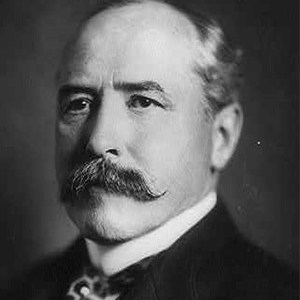Alton Brooks Parker served as Chief Judge of the New York Court of Appeals from 1898-1904. In 1904, he lost the Presidential election to Theodore Roosevelt in a landslide.
Early Life
Alton B. Parker was born in 1852 on a farm in Cortland, New York. He earned a degree from the Albany Law School in 1873 and opened a successful law practice with a fellow student. Parker later became involved with the Democratic party, supporting Grover Cleveland’s candidacy for Governor and later President.
Political Career
In 1885, Parker managed David B. Hill’s successful campaign to become Governor of New York. With Hill’s support, Parker rose to prominence in the New York court system. In 1897, he was elected chief justice of the New York Court of Appeals, the state’s highest court, by an overwhelming margin. During his tenure, Parker was known as a progressive, authoring the opinion upholding New York’s maximum-hours labor law that would later be struck down by the U.S. Supreme Court.
In 1904, Parker’s name was floated as potential Presidential candidate. Judge Parker was a reluctant nominee, previously declining prior offers to run for U.S. Senate and New York Governor in favor of remaining on the bench. Prior to the Democratic Convention, Parker declined to make any public statements concerning his position on key issues facing the country.
Later Career
Parker’s silence on controversial issues, such as the gold standard, ultimately became an asset. When it became clear that Parker was the only candidate who could unify the party, he was selected on the first ballot. As the Democratic candidate, Parker’s campaign was marred by a series of political missteps. While his campaign started to gain traction when Parker accused President Roosevelt’s trust busting crusade of being insincere in light of corporate political contributions, it was too late.
While Parker arguably did as well as any Democrat could have against the popular incumbent, Roosevelt trounced Parker at the polls. Parker earned 5,084,442 votes to Theodore Roosevelt’s 7,628,785. The electoral vote was 336 to 140. After losing his Presidential bid, Parker returned to his legal career and built a successful private practice.








